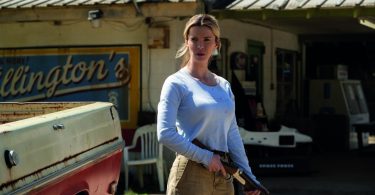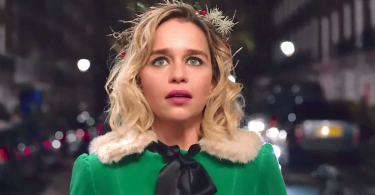Let the bells ring out. John Watson is getting hitched, and Sherlock Holmes is his best man.
Let the bells ring out. John Watson is getting hitched, and Sherlock Holmes is his best man.
The second episode of Sherlock series 3 was another departure from the mystery-heavy format of series 1 and 2, but for its ever-growing fan base, it was more of an evolution than a let-down.
The Sign of Three felt less rushed than The Empty Hearse, and if anything a little slow to start, but Sherlock’s character development was unmistakable. Gone was the emotionally stunted genius with the funny hat and in his place stood an uncertain best man, stumbling his way through a speech that was by turns inappropriate, insulting, and touchingly sincere.
The crux of the plot centred around the ever-present question: Is John’s marriage the end of an era for Holmes and Watson? And in a fantastic script penned by Stephen Thompson – who also wrote The Blind Banker and The Reichenbach Fall – John’s big day formed the basis of the episode but didn’t overwhelm, melding comedy vignettes with dramatic plot turns flawlessly.
An episode of firsts
For the first time we saw Sherlock succumb to alcohol. His usually confident stride turned into an unsteady shamble, his razor-sharp deductions descended into a series of question marks flashed across the screen, and he passed out in the middle of a crime scene before vomiting all over the suspect’s rug.
We also gained a glimpse of his fondness for dancing, his esteem for Watson, and a wonderfully shot chat room scene in a law court, in which Mycroft presided over his brother’s deductions with all of the gravitas of a High Court judge.
And then, of course, there was newcomer Amanda Abbington, playing Watson’s new wife, Mary. Aside from her uncanny ability to understand the endearing dynamic between Sherlock and Watson, and a cracking bit of acting by Martin Freeman’s real-life partner, there was still an element of the two-dimensional about this new incarnation of the third-wheel.
Far from being a divisive character, though, if anything she seemed to cope with her husband’s relationship with the high-maintenance Sherlock a little too easily.
It will be interesting to see how her role in the series progresses in the final episode, whether she becomes someone who can keep up with the frenetic pace of Sherlock’s particularly unstable brand of crime solving, or if she will begin to resent her husband’s relationship with the remarkable detective.
High-powered deductions
Characterisation aside, there was a return to ingenious form in the closing half of the episode. It was impossible not to get carried away by Mycroft urging Sherlock to deduce who the murder victim was before the crime had even been committed, and none of the best man’s anecdotes were wasted in the denouement.
Each tale, no matter how seemingly ludicrous, in actual fact contained a small thread of information for Sherlock to tie together at the eleventh hour, leaving the way clear for him to take up his violin, and play Watson and Mary into their first dance as husband and wife.
Of course though, with a murder averted and the happy couple blissfully content, it couldn’t end there. The incorrigible Mr Holmes went one deduction too far, revealing the true meaning of The Sign of Three and sending Watson and Mary into a tailspin of future commitments, before he quietly slipped away from the reception and out into the night on his own.
Unsolved mysteries
His first and only vow, he claimed, was that he would always be around for Watson and Mary. What, then, are we to deduce from next week’s episode title of His Final Vow?
One thing’s for sure—if another villain to rival Moriarty rears his head, then the newly sensitive Sherlock is going to have to toughen up quickly. Watson’s marital bliss may not last for long.
What did you think of this episode of Sherlock? Have your say in the comments section below.
Image: RanZag / Wikimedia Commons








